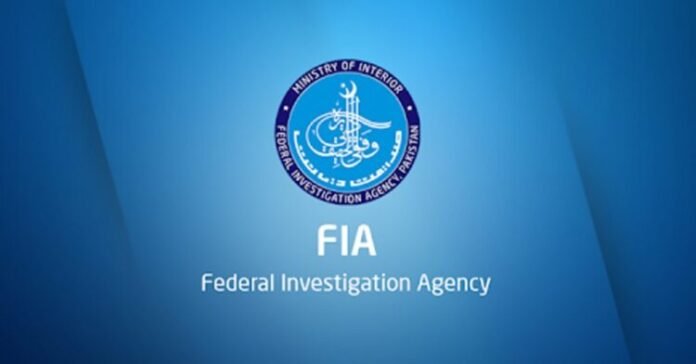ISLAMABAD – In a major development in the ongoing Afghan Entry Visa scam, the Federal Investigation Agency (FIA) has registered a First Information Report (FIR) against two of its own officials over serious allegations of bribery, abuse of power, and evidence tampering.
According to official documents, Waseem Ahmad, an FIA officer investigating the visa scam, and Constable Aqib Mehmood, have been accused of extracting a bribe from the family of a detained suspect and deliberately compromising evidence related to the case.
During a late-night visit on July 10-11, 2025, Waseem Ahmad and Aqib Mehmood allegedly removed the accused, Zubair Ahmad, from the FIA lock-up and arranged a phone call with his son. During the call, they reportedly demanded Rs 2 million in exchange for “favourable treatment” during Zubair’s physical remand — including a smooth transfer to judicial custody afterward.
More alarmingly, it has been alleged that Waseem Ahmad used the call to share digital passwords with the suspect’s son, enabling the deletion of critical data from seized electronic devices that were part of FIR No. 242/2025. These devices had been officially taken into evidence during the course of the investigation.
The FIR accuses both officials of misusing their official positions to demand bribes and interfere with an ongoing criminal case — a violation of both the law and public trust.
Sources reveal that the scope of the investigation is widening. Senior officials in the Ministry of Interior’s visa and border management departments are also under scrutiny for their alleged involvement in the scam, which is believed to have been active for three to four years. It reportedly includes corrupt practices in both visa issuance and visa renewal processes, where large sums of money were allegedly exchanged.
With pressure mounting, the federal government is reportedly considering a major reshuffle in the Ministry of Interior, aiming to tackle what insiders describe as “systemic bad governance.”
The Afghan Entry Visa scam has already triggered alarm within law enforcement and diplomatic circles, especially given its potential implications for border security and international credibility.




